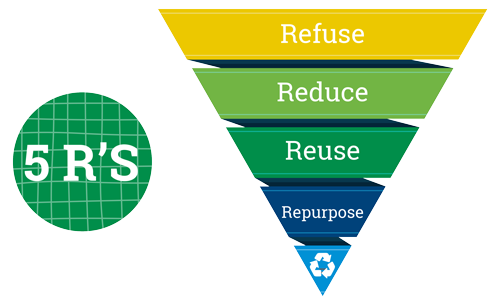Decline unnecessary items, especially single-use plastics, to prevent waste from entering the system.
- Look for vendors who offer take-back programs for packaging.
- Talk to your procurement team about refusing to buy wasteful or non-recyclable products.
